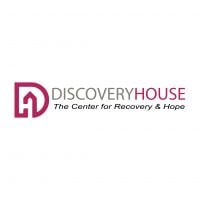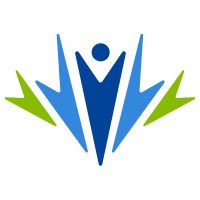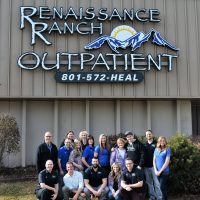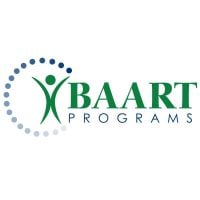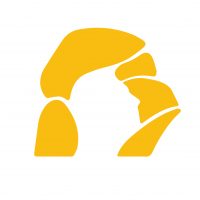D7 Treatment Program
Drug Rehab Center in West Jordan, Utah
Harbour Ridge D7 Treatment Program offers evidence-based Outpatient, Aftercare Support, and Intensive Outpatient Levels of Care for individuals of all backgrounds, utilizing Cognitive Behavioral Therapy, Dialectical Behavioral Therapy, Trauma Therapy, and Motivational Interviewing to develop personalized and effective treatment plans.
About This Utah Facility
D7 Treatment Program in West Jordan, Utah is a substance abuse treatment facility that provides assistance to individuals who are looking to overcome their addiction and get sober. They offer a range of services that cater to the needs of those suffering from substance abuse. D7 Treatment Program offers outpatient, aftercare support, and intensive outpatient levels of care, providing individuals with options that suit their specific circumstances and goals for recovery. Located in a supportive and comfortable environment, D7 Treatment Program is dedicated to helping individuals on their journey to sobriety.
D7 Treatment Program in West Jordan, Utah offers a variety of services and treatment methods for addiction and substance abuse. Their outpatient program allows individuals to receive treatment while maintaining their responsibilities outside of the facility. Through their aftercare support, D7 Treatment Program ensures that individuals are supported even after completing their treatment, helping them to successfully transition back into their everyday lives. Additionally, their intensive outpatient program provides a higher level of support and structure for those who require more intensive treatment. Through a combination of counseling, education, support groups, and various therapeutic techniques, D7 Treatment Program aims to address the root causes of addiction and help individuals develop the skills and tools necessary for long-term recovery.
Genders
Ages
Modality
Additional
Conditions and Issues Treated
People who abuse drugs are likely to suffer from an addiction, which can cause serious health problems. When it comes to helping drug abusers get sober, there are many options to choose from. It is essential to state that there is no “”correct”” way of doing things. People are different, and they need different types of help to get over their addiction.
Levels of Care Offered at D7 Treatment Program
This center offers a variety of custom treatment tailored to individual recovery. Currently available are Aftercare Support, Intensive Outpatient, Outpatient, with additional therapies available as listed below.
Outpatient addiction treatment is beneficial for people who are able to function well in their day-to-day lives. It is recommended for people who are not yet ready to end their relationships with friends or family members who might be encouraging drug and alcohol use.
Intensive outpatient treatment is beneficial for:
- People who are able to attend treatment more than 3 times per week.
- People who do not meet the criteria for inpatient treatment.
- People who are able to contribute to their own recovery outside of the treatment center.
- People who are motivated towards recovery.
- People who are able to overcome addiction on their own without the need for higher levels of care.
Outpatient treatment programs provide drug and alcohol addiction treatment through individual sessions with a counselor, group therapy, 12-step meetings, and other activities to help individuals gain sober living skills. Most programs are designed for those individuals who have completed a medically supervised detoxification program and provide opportunities for clients to begin the process of early recovery.
Outpatient programs also offer a level of medical support as needed and psychological backing through therapy. Clients are encouraged to live at home, though there may be some flexibility regarding this requirement based on the circumstances and needs of each patient.
Outpatient treatment is perhaps the most common type of dual diagnosis program available. It does not pose a significant financial burden on patients. However, it is essential to note that outpatient treatment does not provide the support and supervision given in residential programs. Some addicts may need this level of support to maintain their sobriety.
People who have completed a rehab program often need continued support from the addiction treatment team in order to remain abstinent from drugs and alcohol. Aftercare can be beneficial for personal, social, and emotional growth.
Common aftercare options include:
- Individual Therapy – this type of addiction counseling is available on a one-on-one basis. This can be beneficial for people with a high degree of emotional turmoil and a strong desire to overcome addiction.
- Group Therapy – this type of addiction counseling is available in a group setting. This type of treatment can be beneficial for people who are unable to attend regular therapy appointments due to other responsibilities.
- Family Therapy – this type of addiction counseling is available to the family members of addicts. This can be beneficial for people who are unable to fully comprehend what their loved ones are experiencing due to addiction.
Therapies & Programs
Trauma Therapy is a form of therapy that involves working with a patient to help them process and understand the past trauma(s) in their life. The idea behind it is that while some people can experience traumatic events and not have lasting psychiatric symptoms, many others will. In these cases, memories of the event get hidden from consciousness but continue to influence how the person processes and copes with things in their life. They may avoid situations that resemble what happened or become suddenly angry or irritated to a situation that reminds them of a past event.
With the help of a therapist, people can go back over memories and experiences. This helps them understand why they are having problems coping with certain situations and how they can change how they think and react to things. This therapy is typically done using techniques such as visualization, discussion, and writing down thoughts and feelings.
Trauma therapists will work with clients to help them understand their past and present relationships. Many times, patients may believe that something is inherently wrong with them or that they are unworthy of love. A therapist aims to correct these negative feelings and behaviors by helping the person realize that their actions do not reflect who they truly are.
One of the main goals of trauma therapy is to help clients express their emotions and talk about what they are feeling. This benefits both to increase awareness of how certain events have impacted them in the past and enables patients to realize that they can make changes in their lives.
Dialectical Behavior Therapy is a cognitive-behavioral therapy that helps addicts balance their thoughts and emotions to change their behavior. It was designed for those vulnerable to self-harm and suicidal thoughts and aims to help patients understand the connection between their feelings, emotions, and behaviors. It is effective for those whose addictions and behaviors stem from severe mental health issues.
Cognitive Behavioral Therapy (CBT) is used by drug treatment centers to help addicts comprehend the causes of their substance abuse and the consequences that follow. Through CBT, clients learn to recognize and avoid high-risk situations and cope with challenging situations when they arise.
CBT treatment often includes a combination of individual therapy, group therapy, lectures, and other activities. The treatment’s goal is to help addicts gain self-control and maintain abstinence from drugs and alcohol over the long term so that an addict can get sober and lead a more productive life.
CBT is particularly effective in helping people overcome their drug problems, especially people whose drug abuse is motivated by self-defeating beliefs and emotions.
Additional Details
Specifics, location, and helpful extra information.
West Jordan, Utah 83402 Phone Number(208) 529-1854 Meta DetailsUpdated November 25, 2023
Staff Verified
Patient Reviews
There are no reviews yet. Be the first one to write one.
West Jordan, Utah Addiction Information
More than 500 people in Utah die each year from the effects of drug abuse and/or addiction. Substance abuse rates in Utah have seen an upward trend for a variety of drugs. Opioids are involved in almost 70% of all drug-related deaths in the state, annually. In 2014, Utah officials created a Good Samaritan Law to protect drug users who report possible overdoses from being prosecuted themselves.
In 2016, there were over 2,000 admissions to drug and alcohol rehab centers in West Jordan. Alcohol and opioids were the most commonly cited substances. 38% of residents (aged 35 to 54) died due to alcohol poisoning. The city is located near Salt Lake City, which is a major transportation hub for drugs coming into the state. If your addiction is severe, you may need to attend an inpatient program.
Treatment in Nearby Cities
- Beaver, UT (165.6 mi.)
- West Jordan, UT (0.0 mi.)
- Eagle Mountain, UT (20.8 mi.)
- South Salt Lake, UT (8.0 mi.)
- Bountiful, UT (19.6 mi.)
Centers near D7 Treatment Program
The facility name, logo and brand are the property and registered trademarks of D7 Treatment Program, and are being used for identification and informational purposes only. Use of these names, logos and brands shall not imply endorsement. RehabNow.org is not affiliated with or sponsored by D7 Treatment Program.


